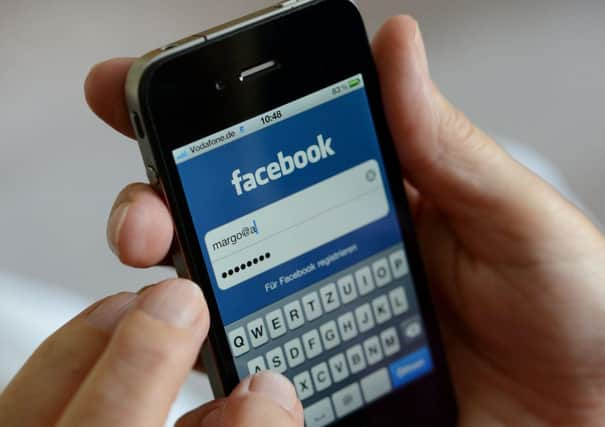Is the ease of social media encouraging endless moaning?


We’ve all experienced those little things that can change a good day into a bad one. The takeaway coffee that’s a bit too cold, the inspector on the train who won’t accept your off-peak ticket...
A few years ago only the dedicated complainer would have aired their grievances. Back then it took effort to register a gripe. Letters had to be written, addresses found and by the time you’d got to “yours faithfully” any initial anger had generally ebbed away.
Advertisement
Hide AdAdvertisement
Hide AdNot any more. A quick hashtag on Twitter or status update on Facebook with both your complaint and the company responsible, and suddenly the whole world can share your woes.
It’s a pretty good place for us, the humble consumer, to be in. Before social media, it felt like a battle of David and Goliath, one that Goliath invariably won. Now though, within seconds and with one swipe of our smartphones, we have the power to both rant and be duly rewarded.
Those most likely to harness this power are 18 to 34-year-olds. A survey for global insurer XL Group found that half of this demographic are more likely to use social media to complain than they were a year ago, with almost a quarter saying they had already used social media to make a complaint.
Ed Mitchell, chief underwriting officer of product recall at XL Group, says: “As people integrate the use of social media into their everyday lives, they are more likely to use these channels to interact with companies and brands.
Advertisement
Hide AdAdvertisement
Hide Ad“This is great for a company when it’s getting ‘liked’, but, when things go wrong, a company needs to have the tools and capability to respond – fast. Not doing so can cost a firm the loyalty of its customers and its hard-earned reputation.”
A quick survey of friends reveals that a tweet about a replacement wheel for a Stokke Changing Unit being a rip-off (£79) resulted in one being sent free of charge; and after bad service on a floral delivery from Marks & Spencer, one tweet led to a full money refund, a replacement bouquet delivered to the original address and flowers for the sender.
Then there’s the recent case of businessman Hasan Syed v British Airways. Exasperated by how the airline was handling some lost luggage belonging to his father, Syed turned to Twitter with a cry of: “Don’t fly @BritishAirways. Their customer service is horrendous”.
Syed took his anger one step further than most, and paid (a rumoured $1,000) to Twitter for his tweet to be promoted.
Advertisement
Hide AdAdvertisement
Hide AdSix hours after the tweet went live, it had been read by thousands, retweeted, commented on and reported in international media.
And yet it took another four hours for British Airways to pick up on it, finally coming up with: “Sorry for the delay in responding, our Twitter feed is open 09:00-17:00 GMT. Please DM [direct message] your baggage ref and we’ll look into this.”
We’ll never know if people avoided booking BA for their next flight because of this episode, but the company’s apparent lack of concern must have dented them in some way.
Social media has given us a voice in an increasingly faceless consumer society, but it’s not without dangers and the fact is that some of the complaints being hurled at corporate social media accounts are entirely fabricated.
Advertisement
Hide AdAdvertisement
Hide AdOnce people see the quick response and promise of free gifts to a genuine criticism, surely some will succumb to the urge to try their luck too, be it based on fact or not.
Yes, the company in question can discover the truth afterwards, but once that tweet or status “send” button has been pressed, the damage has already been done.
So when it comes to online complaining, there’s one golden rule. In the days before social media, would you have bothered to pick up a pen and spend more than the 30 seconds it takes to send that tweet thinking about it? If the answer is no, then perhaps you could let your anger go.
Social media as a whole is already airbrushing our lives with those photo-ready smiles and outfits. Do we really want every interaction with customer service to be completely sanitised too? For a generation that claims to love world travel and “real experience” more than any other, that seems a little at odds.
Advertisement
Hide AdAdvertisement
Hide AdWhat example does it set our children if any semblance of tolerance is constantly replaced by, “Let’s instantly complain about any small error”?
Sometimes, perhaps, we should let a few little inconveniences slide by and teach kids the joys of old-fashioned “niceness” and forgiveness instead.